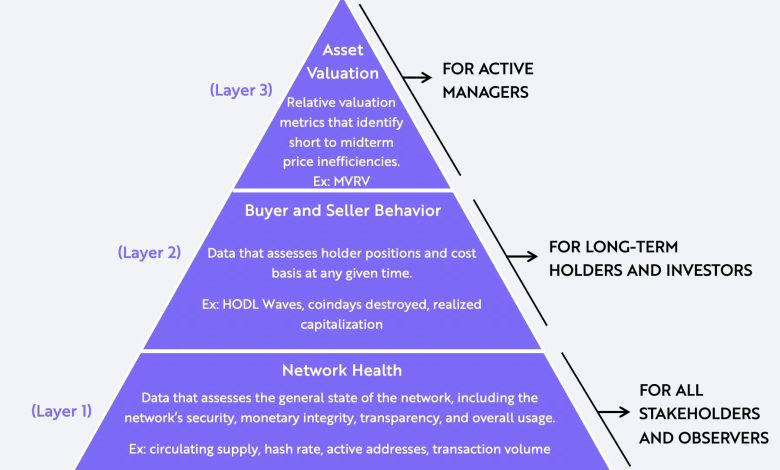Evaluating the Security of Cryptocurrency Networks

- Understanding the importance of security in cryptocurrency networks
- Common vulnerabilities in cryptocurrency networks and how to address them
- The role of encryption in protecting cryptocurrency transactions
- Challenges in securing decentralized cryptocurrency networks
- Best practices for evaluating the security of cryptocurrency networks
- Emerging threats to the security of cryptocurrency networks
Understanding the importance of security in cryptocurrency networks
Cryptocurrency networks are built on the foundation of security, which is crucial for maintaining trust and integrity in the digital financial ecosystem. Understanding the importance of security in cryptocurrency networks is essential for investors, traders, and users alike.
Security in cryptocurrency networks is achieved through various mechanisms such as encryption, decentralized consensus protocols, and robust authentication processes. These security measures help protect against hacking, fraud, and other malicious activities that can compromise the integrity of the network.
By prioritizing security in cryptocurrency networks, stakeholders can mitigate risks and ensure the safety of their assets. This is especially important in an environment where cyber threats are constantly evolving, making it imperative to stay one step ahead of potential attackers.
Furthermore, security breaches in cryptocurrency networks can have far-reaching consequences, including financial losses, reputational damage, and regulatory scrutiny. Therefore, investing in robust security measures is not only a best practice but also a necessity in today’s digital economy.
Common vulnerabilities in cryptocurrency networks and how to address them
When evaluating the security of cryptocurrency networks, it is crucial to be aware of common vulnerabilities that can put these networks at risk. By understanding these vulnerabilities and knowing how to address them, users can better protect their investments and transactions.
- One common vulnerability in cryptocurrency networks is the risk of hacking attacks. Hackers often target exchanges and wallets to steal funds, putting users at risk of financial loss. To address this vulnerability, users should choose reputable exchanges and wallets with strong security measures in place.
- Another vulnerability is the potential for 51% attacks, where a single entity gains control of the majority of the network’s mining power. This can lead to double-spending and other malicious activities. To mitigate this risk, cryptocurrency networks can implement consensus mechanisms that make it more difficult for any one entity to control the network.
- Phishing attacks are also a common threat in cryptocurrency networks, where scammers trick users into revealing their private keys or other sensitive information. To protect against phishing attacks, users should be cautious of unsolicited emails and messages, and always verify the authenticity of websites before entering any personal information.
- Smart contract vulnerabilities are another concern in cryptocurrency networks, as bugs in smart contracts can lead to funds being locked or stolen. To address this vulnerability, developers should conduct thorough testing and auditing of smart contracts before deploying them on the blockchain.
By being aware of these common vulnerabilities and taking proactive steps to address them, users can enhance the security of cryptocurrency networks and minimize the risk of financial loss. It is essential for both individual users and network developers to stay informed about the latest security threats and best practices in the cryptocurrency space.
The role of encryption in protecting cryptocurrency transactions
Encryption plays a crucial role in safeguarding cryptocurrency transactions from unauthorized access and potential security breaches. By utilizing complex algorithms to encode sensitive information, encryption ensures that only authorized parties can access and decipher the data exchanged during transactions. This process helps to protect the integrity and confidentiality of the transaction details, including the sender’s and recipient’s wallet addresses, transaction amounts, and other pertinent information.
Without encryption, cryptocurrency transactions would be vulnerable to interception and manipulation by malicious actors seeking to steal funds or disrupt the network. By encrypting transaction data, cryptocurrency users can mitigate these risks and conduct transactions with greater peace of mind. Encryption also helps to maintain the anonymity of users, as their identities are protected through the use of cryptographic keys that only they possess.
Furthermore, encryption plays a vital role in securing the underlying blockchain technology that powers cryptocurrencies. By encrypting the data stored on the blockchain, developers can ensure that the information remains tamper-proof and resistant to unauthorized modifications. This helps to maintain the trust and reliability of the cryptocurrency network, as users can have confidence that their transactions are secure and immutable.
Challenges in securing decentralized cryptocurrency networks
Securing decentralized cryptocurrency networks poses several challenges due to their unique nature. One of the main challenges is the issue of cybersecurity, as these networks are susceptible to various types of attacks such as 51% attacks and double-spending attacks. Another challenge is the lack of a central authority to oversee security measures, making it difficult to implement consistent security protocols across the network.
Additionally, the anonymity of users on decentralized cryptocurrency networks can make it challenging to trace and identify malicious actors. This lack of transparency can hinder efforts to prevent and respond to security breaches effectively. Moreover, the open-source nature of many cryptocurrency networks means that vulnerabilities can be discovered and exploited by hackers.
Furthermore, the rapid pace of technological advancements in the cryptocurrency space means that security measures must constantly evolve to keep up with new threats. This requires ongoing research and development to identify and address vulnerabilities before they can be exploited. Overall, securing decentralized cryptocurrency networks requires a multi-faceted approach that combines technical solutions, community engagement, and regulatory oversight.
Best practices for evaluating the security of cryptocurrency networks
When evaluating the security of cryptocurrency networks, it is important to follow best practices to ensure the safety of your investments. Here are some key guidelines to consider:
- Conduct thorough research on the cryptocurrency network you are interested in. Look into its history, development team, and security features to gauge its overall reliability.
- Check for any past security breaches or vulnerabilities that may have occurred on the network. This will give you insight into how secure the network is and how well it has handled potential threats.
- Keep an eye on the network’s community and user base. A strong and active community can help identify and address security issues more effectively.
- Utilize secure wallets and exchanges to store and trade your cryptocurrency. Make sure to use two-factor authentication and other security measures to protect your assets.
- Stay informed about the latest security trends and developments in the cryptocurrency space. This will help you stay ahead of potential threats and make informed decisions about your investments.
By following these best practices, you can better evaluate the security of cryptocurrency networks and make more informed decisions about where to invest your money. Remember that security should always be a top priority when dealing with cryptocurrencies to protect your assets from potential threats.
Emerging threats to the security of cryptocurrency networks
Cryptocurrency networks face a range of emerging threats that can compromise their security and integrity. One of the main challenges is the risk of cyber attacks, such as hacking and phishing attempts, which can result in the theft of digital assets. Additionally, the growing popularity of cryptocurrencies has attracted the attention of malicious actors who seek to exploit vulnerabilities in network protocols and software.
Another threat to cryptocurrency networks is the presence of fraudulent schemes and scams that target unsuspecting users. These schemes often promise high returns or guaranteed profits in exchange for investments in dubious projects or platforms. As a result, users may fall victim to Ponzi schemes, pyramid schemes, or other forms of financial fraud that can lead to significant losses.
Furthermore, regulatory uncertainty and government intervention pose a threat to the security of cryptocurrency networks. Some countries have imposed restrictions on the use of cryptocurrencies or have banned them altogether, creating legal challenges for users and businesses operating in the space. This regulatory uncertainty can create a hostile environment for cryptocurrency networks, making it difficult for them to thrive and innovate.
In conclusion, the security of cryptocurrency networks is constantly evolving as new threats emerge and existing vulnerabilities are exploited. It is essential for users, developers, and regulators to work together to address these challenges and ensure the long-term viability of cryptocurrencies as a secure and reliable form of digital currency.



